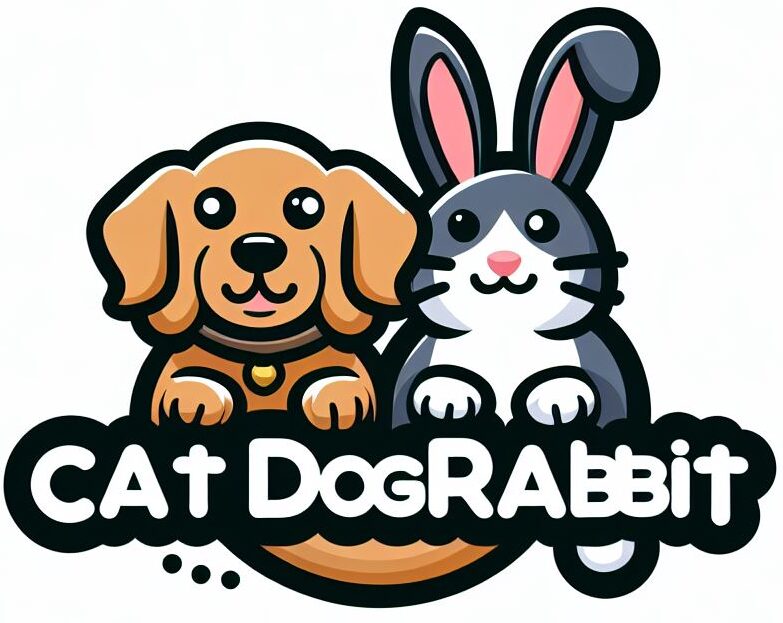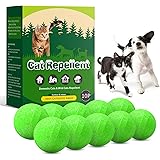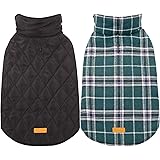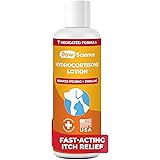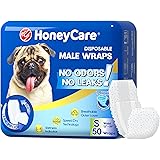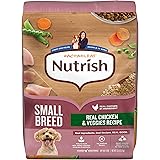
CuteBone Little Miss Sassy Pants Dog Leopard Print Dress Velvet for Small Dogs Girl Puppy Dresses Pink Dog Clothes CVA15XXS-D
$13.99 (as of 02/08/2026 14:12 GMT +00:00 - More infoProduct prices and availability are accurate as of the date/time indicated and are subject to change. Any price and availability information displayed on [relevant Amazon Site(s), as applicable] at the time of purchase will apply to the purchase of this product.)Earth Rated Pet Wipes for Dogs and Cats, Hypoallergenic, Cleaning and Hydrating, for Grooming Paws, Body and Butt, Unscented, 100 Count
$9.98 (as of 02/08/2026 14:07 GMT +00:00 - More infoProduct prices and availability are accurate as of the date/time indicated and are subject to change. Any price and availability information displayed on [relevant Amazon Site(s), as applicable] at the time of purchase will apply to the purchase of this product.)Cideny 78" Extra Wide Baby Gate, Dog Gates Indoor for Doorways Stairs, Essential Safety Gate for Child, Hardware Mounted Adjustable Pet Gate with Anti-Trip Pedal, 28'' Tall 3 Metal Panels Black
$59.99 (as of 02/08/2026 14:07 GMT +00:00 - More infoProduct prices and availability are accurate as of the date/time indicated and are subject to change. Any price and availability information displayed on [relevant Amazon Site(s), as applicable] at the time of purchase will apply to the purchase of this product.)Cat Repellent Outdoor to Keep Cats Away, Natural Peppermint Oil Cat Deterrent Outdoor and Indoor, Keep Cats Out of Yard Permanently, Protect Your Yard and Furniture (Green,10 Count (Pack of 1))
$17.99 (as of 02/08/2026 14:07 GMT +00:00 - More infoProduct prices and availability are accurate as of the date/time indicated and are subject to change. Any price and availability information displayed on [relevant Amazon Site(s), as applicable] at the time of purchase will apply to the purchase of this product.)Kuoser Waterproof Dog Coat, Reversible Dog Jacket for Medium Dogs, Adjustable Durable Doggie Winter Coat Warm Puppy Cold Weather Apparel from Small to Large Breed, Green M
$22.99 (as of 02/08/2026 14:12 GMT +00:00 - More infoProduct prices and availability are accurate as of the date/time indicated and are subject to change. Any price and availability information displayed on [relevant Amazon Site(s), as applicable] at the time of purchase will apply to the purchase of this product.)Ameritex Waterproof Dog Bed Cover Pet Blanket for Furniture Bed Couch Sofa Reversible
$7.19 (as of 02/08/2026 14:12 GMT +00:00 - More infoProduct prices and availability are accurate as of the date/time indicated and are subject to change. Any price and availability information displayed on [relevant Amazon Site(s), as applicable] at the time of purchase will apply to the purchase of this product.)JTJTXL 1-Touch Dog Bark Deterrent Devices with 3 Sonic Heads,Portable 50ft Range Anti Barking Device for Dogs,Rechargeable & Safe Dog Training Tool with Flashlight,Helps Improve Dog's Behavior Orange
$56.99 (as of 02/08/2026 14:07 GMT +00:00 - More infoProduct prices and availability are accurate as of the date/time indicated and are subject to change. Any price and availability information displayed on [relevant Amazon Site(s), as applicable] at the time of purchase will apply to the purchase of this product.)Paw Science Anti-Itch Hydrocortisone Moisturizing Lotion for Dogs & Cats – Hot Spot Treatment, Dog Itching Skin Relief, Itchy Hotspots Cream, Medicated Ointment for Irritation & Rash
$9.99 (as of 02/08/2026 14:07 GMT +00:00 - More infoProduct prices and availability are accurate as of the date/time indicated and are subject to change. Any price and availability information displayed on [relevant Amazon Site(s), as applicable] at the time of purchase will apply to the purchase of this product.)Shock Collar for Dogs, Rechargeble Dog Shock Collar with Remote Control for Medium Large Dogs 40-120lbs, IP68 Waterproof Dog Training Collar with Beep Vibration and Static
$89.99 (as of 02/08/2026 14:07 GMT +00:00 - More infoProduct prices and availability are accurate as of the date/time indicated and are subject to change. Any price and availability information displayed on [relevant Amazon Site(s), as applicable] at the time of purchase will apply to the purchase of this product.)Veganism is a lifestyle choice that has gained significant popularity in recent years, with many people choosing to adopt a plant-based diet for ethical, environmental, and health reasons. This trend has extended to pet owners, who are now considering whether it is possible and beneficial to feed their cats a vegan diet. While cats are obligate carnivores and have specific nutritional requirements that must be met, some pet owners believe that a vegan diet can still provide all the necessary nutrients for their feline companions.
Key Takeaways
- Veganism for cats is a growing trend among pet owners who want to reduce their pets’ environmental impact and promote animal welfare.
- A vegan diet for cats can provide health benefits such as weight management, improved digestion, and reduced risk of certain diseases.
- However, cats have specific nutritional requirements that must be met through careful planning and supplementation on a vegan diet.
- Potential risks of a vegan diet for cats include nutrient deficiencies, digestive issues, and urinary tract problems.
- Protein sources for vegan cats include plant-based options such as soy, peas, and lentils, as well as synthetic amino acids.
Benefits of a Vegan Diet for Cats
There are several potential benefits of feeding cats a vegan diet. One of the main advantages is a reduced risk of obesity and related health issues. Traditional cat food often contains high levels of carbohydrates and fats, which can contribute to weight gain. A vegan diet, on the other hand, is typically lower in calories and higher in fiber, which can help cats maintain a healthy weight.
Another potential benefit of a vegan diet for cats is improved digestion and fewer hairballs. Many commercial cat foods contain fillers and additives that can be difficult for cats to digest, leading to gastrointestinal issues and excessive shedding. A vegan diet, which is typically free from these additives, may help improve digestion and reduce hairball formation.
Additionally, some studies suggest that a vegan diet may reduce the risk of certain types of cancer in cats. Meat-based diets have been linked to an increased risk of certain cancers, such as lymphoma. By eliminating animal products from their diet, cats may have a lower risk of developing these types of cancers.
Furthermore, feeding cats a vegan diet can have a lower environmental impact compared to traditional meat-based diets. The production of meat-based pet food contributes to deforestation, greenhouse gas emissions, and water pollution. By choosing a vegan diet for their cats, pet owners can help reduce their carbon footprint and contribute to a more sustainable future.
Nutritional Requirements for Cats
Cats are obligate carnivores, which means they have specific nutritional needs that must be met in order to maintain optimal health. They require high levels of protein, as well as certain essential amino acids, vitamins, and minerals that are found primarily in animal products. These nutrients are crucial for maintaining healthy skin and coat, supporting a strong immune system, and promoting overall growth and development.
Meeting these nutritional requirements on a vegan diet can be challenging. While plant-based proteins can provide some of the necessary amino acids, they may not be as easily digestible or bioavailable as animal-based proteins. Additionally, certain essential nutrients, such as taurine and vitamin B12, are only found in animal products and must be supplemented in a vegan cat’s diet.
Potential Risks of a Vegan Diet for Cats
| Potential Risks of a Vegan Diet for Cats |
|---|
| 1. Nutritional deficiencies |
| 2. Taurine deficiency |
| 3. Vitamin A deficiency |
| 4. Protein deficiency |
| 5. Digestive problems |
| 6. Urinary tract problems |
| 7. Dental problems |
| 8. Behavioral problems |
Feeding cats a vegan diet can pose potential risks if not done properly. Cats have specific dietary needs that must be met in order to prevent deficiencies and health issues. A vegan diet may not provide all the essential nutrients that cats require, such as taurine, arachidonic acid, and vitamin A. Deficiencies in these nutrients can lead to serious health problems, including heart disease, vision issues, and immune system dysfunction.
Furthermore, some studies suggest that cats on a vegan diet may be at an increased risk of developing urinary tract issues, such as bladder stones or urinary tract infections. This is because plant-based diets tend to be more alkaline, which can create an environment that is conducive to the formation of crystals or stones in the urinary tract.
It is important for pet owners considering a vegan diet for their cats to consult with a veterinarian before making any dietary changes. A veterinarian can assess the individual cat’s nutritional needs and provide guidance on how to ensure all essential nutrients are being met through a vegan diet.
Protein Sources for Vegan Cats
Protein is an essential nutrient for cats, as it provides the building blocks for healthy muscles, tissues, and organs. While cats are obligate carnivores and require animal-based proteins, there are plant-based protein sources that can be included in a vegan cat’s diet.
One common plant-based protein source for vegan cats is soy. Soy is a complete protein, meaning it contains all the essential amino acids that cats require. It is also highly digestible and bioavailable, making it a suitable option for meeting a cat’s protein needs.
Another protein source for vegan cats is peas. Peas are rich in protein and fiber, and they can be easily incorporated into a cat’s diet through commercial vegan cat food or homemade recipes. Other plant-based protein sources that can be included in a vegan cat’s diet include lentils, quinoa, and chickpeas.
While these plant-based protein sources can provide some of the necessary amino acids for cats, it is important to note that they may not be as easily digestible or bioavailable as animal-based proteins. Therefore, it is crucial to ensure that a vegan cat’s diet is properly balanced and supplemented with essential nutrients to prevent deficiencies.
Vitamin and Mineral Supplements for Vegan Cats

In order to meet all of a cat’s nutritional needs on a vegan diet, it may be necessary to supplement with certain vitamins and minerals. Some essential nutrients that may be lacking in a vegan cat’s diet include taurine, arachidonic acid, vitamin A, and vitamin B12.
Taurine is an amino acid that is found primarily in animal tissues and is crucial for maintaining healthy heart function, vision, and reproductive health in cats. Since taurine is not naturally present in plant-based foods, it must be supplemented in a vegan cat’s diet.
Arachidonic acid is an omega-6 fatty acid that is found primarily in animal fats and is important for maintaining healthy skin and coat, as well as supporting immune function. Like taurine, arachidonic acid must be supplemented in a vegan cat’s diet.
Vitamin A is another essential nutrient for cats that is primarily found in animal tissues. It is important for maintaining healthy vision, immune function, and reproductive health. Vitamin A can be obtained from plant-based sources, such as carrots and sweet potatoes, but it may not be as easily absorbed or utilized by cats compared to animal-based sources.
Vitamin B12 is a crucial nutrient that is only found naturally in animal products. It is important for maintaining healthy nerve function, producing red blood cells, and supporting overall growth and development. Vegan cats must receive a supplemental source of vitamin B12 in their diet to prevent deficiencies.
There are several vegan cat food brands on the market that are specifically formulated to meet all of a cat’s nutritional needs, including essential vitamins and minerals. These commercial vegan cat foods often contain added supplements to ensure that cats receive all the necessary nutrients for optimal health.
Ethical Considerations of a Vegan Diet for Cats
Feeding cats a vegan diet raises ethical considerations regarding the welfare of animals. Many pet owners choose to adopt a vegan lifestyle themselves due to concerns about animal cruelty and the environmental impact of animal agriculture. They may extend these ethical beliefs to their pets and believe that it is more ethical to feed their cats a vegan diet.
However, there are differing opinions on whether it is ethical to feed cats a vegan diet. Some argue that obligate carnivores like cats have evolved to require animal-based proteins and nutrients for optimal health. They believe that it is not ethical to force cats to adhere to a vegan diet that may not meet all of their nutritional needs.
On the other hand, proponents of veganism for cats argue that it is possible to meet all of a cat’s nutritional needs on a vegan diet with proper supplementation. They believe that it is more ethical to feed cats a vegan diet that avoids the suffering and exploitation of animals in the meat industry.
Common Myths About Vegan Cats
There are several common myths and misconceptions about feeding cats a vegan diet that need to be addressed. One common myth is that cats cannot thrive on a vegan diet and will suffer from nutritional deficiencies. While it is true that cats have specific nutritional needs that must be met, it is possible to provide all the necessary nutrients through a properly balanced vegan diet with appropriate supplementation.
Another myth is that cats require meat in their diet in order to obtain essential amino acids, such as taurine. While it is true that taurine is primarily found in animal tissues, it can be supplemented in a vegan cat’s diet to ensure they receive adequate levels of this essential nutrient.
Additionally, some people believe that feeding cats a vegan diet is unnatural and goes against their evolutionary biology. While it is true that cats are obligate carnivores and have evolved to require animal-based proteins, it is also important to consider the environmental impact and ethical implications of feeding cats a meat-based diet.
It is important to rely on scientific evidence and consult with a veterinarian who is knowledgeable about veganism for cats when considering a vegan diet for your feline companion.
Veterinarian Recommendations for Vegan Cats
Opinions among veterinarians regarding veganism for cats vary. Some veterinarians believe that it is possible to meet all of a cat’s nutritional needs on a vegan diet with proper supplementation. They may recommend specific commercial vegan cat food brands or provide guidance on how to properly balance a homemade vegan cat food recipe.
Other veterinarians may be more skeptical of feeding cats a vegan diet and may recommend against it. They may believe that obligate carnivores like cats require animal-based proteins and nutrients for optimal health and may be concerned about the potential risks and deficiencies associated with a vegan diet.
It is important for pet owners considering a vegan diet for their cats to find a veterinarian who is knowledgeable about veganism for cats and can provide guidance and support. A veterinarian can assess the individual cat’s nutritional needs, monitor their health, and make recommendations based on their specific circumstances.
Is a Vegan Diet Safe and Healthy for Cats?
In conclusion, feeding cats a vegan diet is a controversial topic that raises ethical, environmental, and health considerations. While it is possible to meet all of a cat’s nutritional needs on a vegan diet with proper supplementation, it is important to consult with a veterinarian before making any dietary changes.
A vegan diet for cats may offer potential benefits, such as reduced risk of obesity, improved digestion, and lower environmental impact. However, there are also potential risks associated with a vegan diet, including deficiencies in essential nutrients and increased risk of certain health issues.
Ultimately, the decision to feed a cat a vegan diet should be made in consultation with a veterinarian who can assess the individual cat’s nutritional needs and provide guidance on how to ensure all essential nutrients are being met. It is important to prioritize the health and well-being of the cat above all else when considering a vegan diet.
FAQs
What is a vegan cat?
A vegan cat is a cat that is fed a diet consisting of only plant-based foods, without any animal products.
Is it safe for cats to be vegan?
There is ongoing debate among experts about whether a vegan diet is appropriate for cats. Some argue that cats are obligate carnivores and require certain nutrients found only in animal products, while others believe that a well-planned vegan diet can meet a cat’s nutritional needs.
What are the potential risks of feeding a cat a vegan diet?
Feeding a cat a vegan diet that is not properly balanced can lead to nutritional deficiencies, such as taurine deficiency, which can cause heart problems and blindness. Cats may also have difficulty digesting certain plant-based proteins and may develop gastrointestinal issues.
What are the benefits of feeding a cat a vegan diet?
Advocates of vegan cat diets argue that it is a more ethical and sustainable option, as it does not involve the use of animal products. It may also be beneficial for cats with certain health conditions, such as allergies or kidney disease.
How can I ensure my vegan cat is getting all the necessary nutrients?
If you choose to feed your cat a vegan diet, it is important to work with a veterinarian or animal nutritionist to ensure that the diet is properly balanced and meets all of your cat’s nutritional needs. This may involve supplementing with certain nutrients, such as taurine and vitamin B12.
